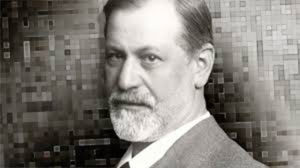La « Question Psychothérapique » Quels enjeux, pour la psychanalyse ?
Résumé
Au travers de considérations historiques, épistémologiques et métapsychologiques, l’auteur propose une série de perspectives en vue de cerner la question de fond, devenue aujourd’hui incontournable, que les pratiques psychothérapiques viennent poser à la psychanalyse. Dans un premier mouvement, l’auteur tente de montrer en quoi, selon lui, que ce soit en clinique ou en théorie, la position épistémique psychanalytique est informée par une triple dialectique enchevêtrée qui en assure son heuristique singulière : celle d’« ouverture/clôture », de « théorie/clinique » et de « thérapeutique/analytique ». Il propose une vision selon laquelle toute entreprise analytique, ainsi entendue, fonctionnerait en oscillation entre deux polarités : l’une psychothérapique et l’autre psychanalytique, dont il s’agirait de rétablir les possibilités oscillatoires autour de son « ombilic », constitué par sa « rencontre » aux potentialités co-subjectivantes. S’appuyant, dans un deuxième mouvement, sur de nombreux travaux qui lui ont été consacrés au cours de ces toutes dernières années et, notamment, sur le récent rapport de l’enquête que l’IPA a effectué auprès de ses Sociétés constituantes en vue de relever les spécificités régionales selon lesquelles étaient entendus les rapports entre psychanalyse et thérapies apparentées, l’auteur s’essaye à dégager les points de confrontations fondamentaux qui opposent les divers ensembles de psychanalystes et qui touchent à la notion clinique de « processus » et à celle métapsychologique de « pulsion ». A la suite d’A. Green, il développe l’idée selon laquelle la « pulsion » constitue la matrice originaire de la subjectalité et qu’à en édulcorer le concept, l’on risque des rabattements cliniques ou théoriques dommageables pour la psychanalyse. L’auteur développe pour terminer des considérations relatives à des questions institutionnelles et de formation et concernant les psychothérapies dites psychanalytiques.
Samenvatting
Bij het verrichten van allerlei psychotherapiën stellen zich aan de psychoanalytici vandaag een aantal niet te vermijden fundamentele vragen. Aan de hand van allerlei historische, epistemologidche en metapsychologische beschouwingen probeert de auteur een aantal perspectieven te belichten.
In een eerste denkpiste wil hij aantonen hoe de epistemologische positie van de psychoanalyticus gevoed wordt vanuit een drievoudige dooreengestrengelde dialectiek en dit zowel in de klinische praktijk als in de theorie. Door deze positie aan te nemen krijgen we de garantie dat we op een gans bizondere wijze tot een zelf ontdekkende (heuristische) waarheid komen.
Vooreerst is er de tweedeling "openheid-geslotenheid", verder deze van "theorie-klinische praktijk" en tenslotte deze van "therapeutisch-psycho-analytisch".
Volgende visie wordt dan ontwikkeld : gelijk welke psychoanalytische onder neming, als dusdanig bedoeld, functioneert al schommelend tussen twee polen : een psychotherapeutische en een psychoanalytische. We moeten er toe komen om schommelingen, optredend in beide richtingen rondom de "navel" van het therapeutisch gebeuren, mogelijk te maken. Die "navel" komt tot stand via de ontmoeting die in de psychoanalytische activiteit vorm krijgt en aan beide partners mogelijkheden biedt om tot een persoonlijke beleving en toeëigening te komen.
In een tweede denkpiste steunt de auteur op talrijke studies die de laatste jaren over dit onderwerp verschenen. Meer bepaald wordt aandacht besteed aan een recent verslag van een studie die de IPA verrichtte bij de diverse aangesloten verenigingen.
De bedoeling daarbij was een zicht te krijgen op de specifieke regionale kenmerken : hoe namelijk de verhouding tussen psychoanalyse en aanverwante therapieën gezien werd. Daaruit wil de auteur dan de fundamentele confrontatiepunten naar voor halen waarop de diverse psychoanalytische groeperingen van mening verschillen.
Deze draaien rond het klinisch begrip van "psychoanalytisch proces" en het metapsychologisch begrip van "drift".
André Green volgend, ontwikkelt hij de idee dat het begrip "drift" de (matrix vormt voor) de persoonlijke beleving en bewustzijn. Wanneer we dit begrip gaan verdunnen riskeren we de verwatering van allerlei klinische en theoretische gegevens en dit tot schade van de psychoanalyse. Tot slot volgen enkele beschouwingen over vragen die zich stellen in verband met de psychoanalytische instellingen en opleidingen en die gaan over de zogenaamde psychoanalytische psychotherapieën.
Summary
Through historical, epistemic and metapsychological considerations, the author proposes a series of perspectives in view to surround the central question that psychotherapy poses right from the start to psychoanalysis and which today we can’t avoid. In the first part of his work, the author attempts to show in what, way according to him, the epistemic position which underlies the psychoanalytical practices and theorisations, is framed in a triple tangled dialectic which ensures its remarkable heuristic : those «opening/enclosure», «clinic/theory» and « therapy/analytic». He proposes a view according to which all analytic enterprises, seen in that way, would function in oscillation between two polarities : the one psychotherapeutic and the other psychoanalytical. It would attempt to re-establish oscillatory possibilities around its «umbilicus», constituted by its «encounter» with its co-subjectivation potentialities. In a second movement, basing himself on several recent works devoted to psychotherapy, and, notably, on the recent report of the inquiry that the IPA has undertaken among its component Societies to search for the regional specificities about the relationships between psychoanalysis and related therapies, the author tries to determine the fundamental points of conflict that oppose the various groups of psychoanalysts. According to him, these are to do with the clinical notion of «process» and the metapsychological concept of «drive». In agreement with A. Green, he defends the hypothesis that the «drive» constitutes the original matrix of the subjectality and that if its concept gets watered down, one risks squashing it, clinically or theoretically in a way detrimental to the psychoanalysis. The author develops finally considerations relative to institutional and training questions concerning psychoanalytical psychotherapies.





